Having healthy and smooth skin is a dream for many people. To achieve this, maintaining essential moisture for the skin is crucial. In the cosmetics industry, natural moisturizers have become an increasingly popular trend. In this article, we will explore the natural ingredients in cosmetics that help moisturize and protect our skin.
Definition of natural moisturizer
A natural moisturizer refers to a skincare product or ingredient that is derived from natural sources, such as plants, fruits, nuts, or other organic substances. It is used to hydrate and nourish the skin, improving its moisture content and overall appearance. Natural moisturizers typically contain beneficial components like essential oils, plant extracts, vitamins, and antioxidants that help replenish and maintain the skin’s hydration levels. They are often preferred by individuals seeking skincare options that are free from synthetic chemicals, artificial fragrances, and potentially harmful additives. Natural moisturizers work in harmony with the skin’s natural processes, providing effective hydration and promoting healthy, glowing skin.
Why Natural Moisturization is Important
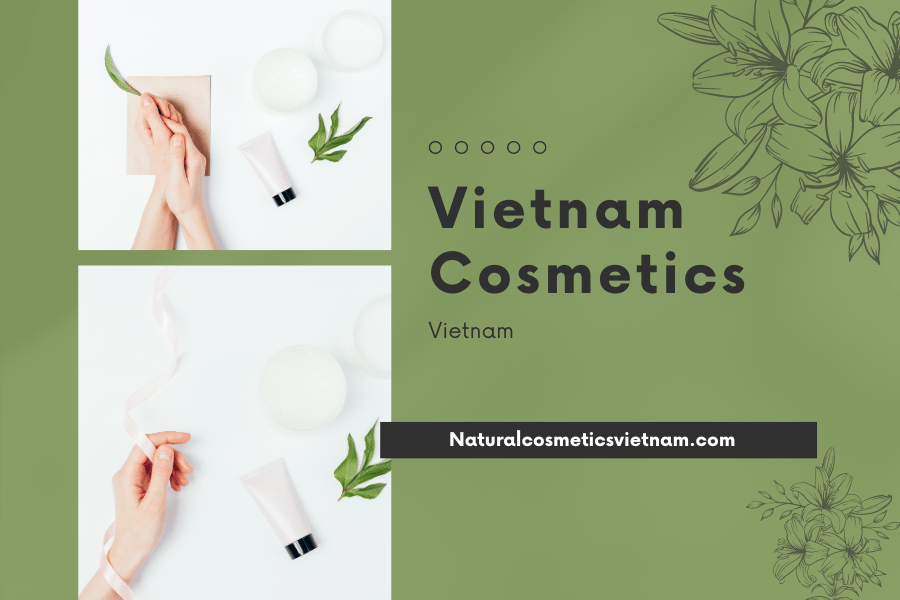
All about natural moisturizers in cosmetics
Natural moisturization is important for several reasons:
- Nourishes the Skin: Natural moisturizers provide essential nutrients, vitamins, and minerals that nourish the skin from within. These ingredients help replenish the skin’s moisture barrier and support its overall health and vitality.
- Retains Moisture: Natural moisturizers have the ability to lock in moisture and prevent water loss from the skin. This is crucial in maintaining proper hydration levels, as dehydrated skin can lead to dryness, flakiness, and a dull complexion.
- Gentle and Non-Irritating: Many natural moisturizers are well-tolerated by the skin and less likely to cause irritation or allergic reactions. They are free from harsh chemicals, synthetic fragrances, and artificial additives that can potentially harm or sensitize the skin.
- Suitable for All Skin Types: Natural moisturizers are versatile and suitable for all skin types, including sensitive, dry, oily, and combination skin. They work in harmony with the skin’s natural processes and help balance its oil production, making them an ideal choice for a wide range of individuals.
- Environmental Friendliness: Natural moisturizers are often derived from sustainable and eco-friendly sources. They are typically produced using environmentally conscious practices and avoid the use of harmful chemicals or processes that can harm the planet.
- Long-Term Benefits: Consistent use of natural moisturizers can provide long-term benefits for the skin. By promoting hydration and supporting the skin’s natural functions, they can help improve skin texture, reduce the appearance of fine lines and wrinkles, and enhance overall skin health and radiance.
In summary, natural moisturization is important as it nourishes the skin, retains moisture, is gentle on the skin, suits all skin types, is environmentally friendly, and offers long-term benefits. Incorporating natural moisturizers into your skincare routine can contribute to a healthier, more radiant complexion.
Natural Moisturizing Ingredients
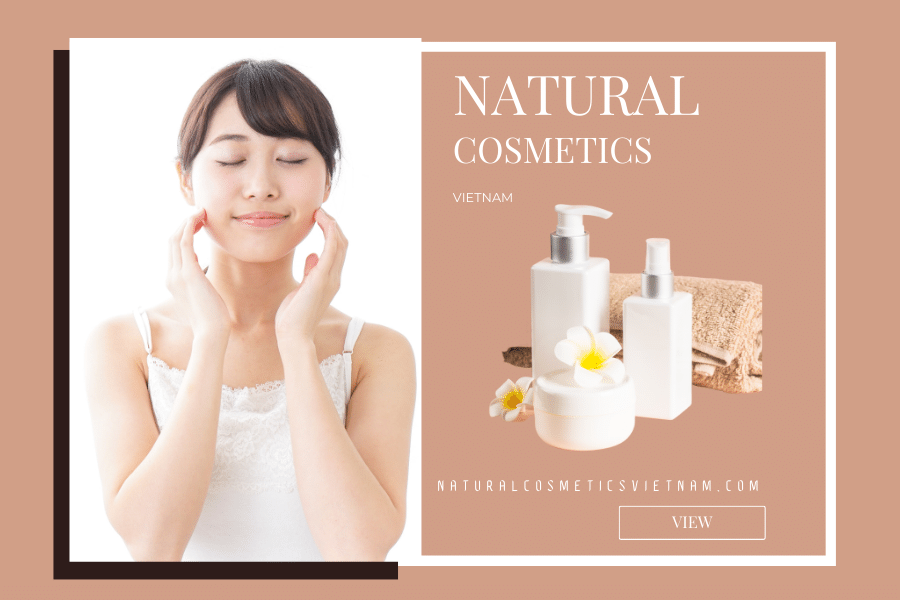
All about natural moisturizers in cosmetics
There are several natural moisturizing ingredients commonly used in skincare products. Here are some examples:
- Aloe Vera: Aloe vera gel is a popular natural moisturizer known for its soothing and hydrating properties. It helps to replenish and retain moisture in the skin, making it suitable for dry and sensitive skin types.
- Coconut Oil: Coconut oil is a versatile moisturizer rich in fatty acids that nourish and hydrate the skin. It forms a protective barrier, preventing moisture loss and keeping the skin soft and supple.
- Shea Butter: Derived from the nuts of the shea tree, shea butter is a rich moisturizer that contains vitamins, antioxidants, and fatty acids. It deeply moisturizes the skin, promoting elasticity and smoothness.
- Jojoba Oil: Jojoba oil closely resembles the natural sebum produced by the skin, making it an excellent moisturizer. It helps to balance oil production, keeping the skin hydrated without clogging pores.
- Olive Oil: Olive oil is a natural moisturizer packed with antioxidants and healthy fatty acids. It deeply nourishes and moisturizes the skin, improving its texture and providing a radiant glow.
- Rosehip Oil: Rosehip oil is a lightweight moisturizer rich in essential fatty acids, vitamins, and antioxidants. It helps to hydrate the skin, reduce the appearance of fine lines, and improve overall skin tone.
- Honey: Honey is a natural humectant that attracts and retains moisture, making it an effective moisturizer. It also has antibacterial properties and helps to soothe and hydrate the skin.
- Cucumber Extract: Cucumber extract is known for its cooling and hydrating properties. It helps to replenish moisture, reduce inflammation, and rejuvenate the skin.
- Hyaluronic Acid: Although not naturally derived, hyaluronic acid is a naturally occurring substance in the body. It has excellent moisture-retaining properties, capable of holding up to 1000 times its weight in water, making it a highly effective moisturizing ingredient.
These are just a few examples of natural moisturizing ingredients used in skincare products. Incorporating products that contain these ingredients can help nourish, hydrate, and improve the overall health and appearance of the skin.
Benefits of Natural Moisturization
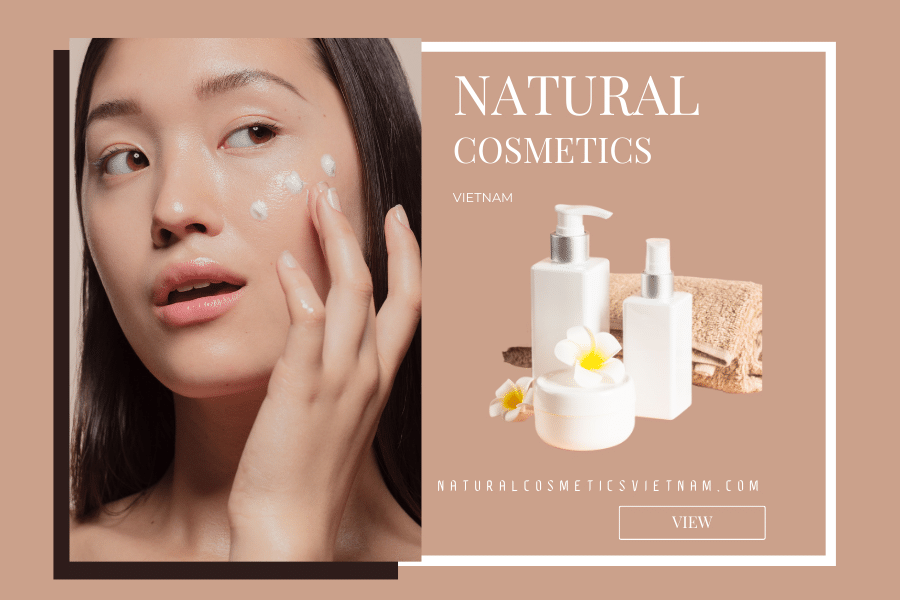
All about natural moisturizers in cosmetics
Natural moisturization offers several benefits for the skin. Here are some key advantages:
Hydration
Hydration is indeed a crucial benefit of natural moisturizers. Natural moisturizers have the ability to deeply hydrate the skin, replenishing its moisture levels and preventing dryness, flakiness, and a dull appearance. Here are some key points elaborating on the importance of hydration provided by natural moisturizers:
- Moisture Retention: Natural moisturizers are effective at locking in moisture and preventing water loss from the skin. They form a protective barrier on the skin’s surface, sealing in hydration and helping to maintain optimal moisture levels. This is essential for preventing dryness and maintaining a healthy skin barrier.
- Improved Skin Texture: Proper hydration provided by natural moisturizers helps to improve the overall texture of the skin. Hydrated skin appears smoother, plumper, and more supple, reducing the appearance of fine lines and wrinkles. It also helps to create a smoother canvas for makeup application.
- Radiant and Glowing Complexion: Well-hydrated skin tends to have a natural radiance and glow. When the skin is adequately hydrated, it reflects light more evenly, resulting in a healthy and luminous complexion. Natural moisturizers can contribute to this radiant appearance.
- Soothing and Calming: Hydrated skin is less prone to irritation and sensitivity. Natural moisturizers often contain soothing ingredients such as aloe vera or chamomile, which help to calm and soothe the skin, reducing redness and inflammation.
- Improved Skin Health: Hydrated skin is healthier and more resilient. It is better equipped to defend against environmental stressors and external aggressors that can damage the skin. Well-moisturized skin also helps to support the skin’s natural functions, such as cell turnover and repair processes.
- Balancing Oil Production: Natural moisturizers can help balance oil production in the skin. When the skin is adequately hydrated, it is less likely to overproduce oil to compensate for dryness. This can be particularly beneficial for individuals with oily or combination skin types.
In summary, natural moisturizers play a vital role in hydrating the skin, preventing dryness, and maintaining a healthy and radiant complexion. By incorporating natural moisturizers into your skincare routine, you can enjoy the benefits of deep hydration, improved skin texture, and overall skin health.
Nourishment
Absolutely, nourishment is an important aspect of natural moisturizers. They are often enriched with beneficial nutrients, vitamins, and antioxidants that provide nourishment to the skin. Here are some key points elaborating on the nourishing properties of natural moisturizers:
- Essential Nutrients: Natural moisturizers are formulated with ingredients that are rich in essential nutrients, such as vitamins, minerals, and amino acids. These nutrients are vital for the overall health and well-being of the skin. They help to support the skin’s functions, promote cellular repair, and maintain a balanced and vibrant complexion.
- Vitamin Enrichment: Many natural moisturizers contain vitamins like vitamin C, E, and B complex. Vitamin C, for example, is known for its antioxidant properties and its ability to brighten the skin and improve skin tone. Vitamin E acts as a powerful antioxidant, protecting the skin from free radicals and promoting a more youthful appearance. Vitamin B complex helps to nourish and maintain the skin’s moisture barrier.
- Antioxidant Protection: Natural moisturizers often incorporate antioxidants derived from plant extracts or botanical ingredients. Antioxidants help to neutralize free radicals, which are unstable molecules that can cause damage to the skin cells. By providing antioxidant protection, natural moisturizers help to combat oxidative stress and prevent premature aging, resulting in a healthier and more youthful complexion.
- Hydrating and Nourishing Oils: Natural moisturizers often contain nourishing oils, such as jojoba oil, argan oil, or avocado oil. These oils are rich in fatty acids, which help to nourish and hydrate the skin, improving its texture and suppleness. They also provide a protective barrier to lock in moisture and prevent moisture loss from the skin.
- Plant Extracts and Botanicals: Many natural moisturizers harness the power of plant extracts and botanical ingredients. These extracts are often packed with beneficial compounds that nourish and rejuvenate the skin. For example, aloe vera extract has soothing and hydrating properties, while green tea extract is known for its antioxidant and anti-inflammatory benefits.
- Skin Regeneration: Natural moisturizers can help support the skin’s natural regeneration process. They provide nourishment to the skin cells, promoting their renewal and helping to improve the overall health and appearance of the skin. This can contribute to a more vibrant and youthful complexion.
In summary, natural moisturizers not only provide hydration but also nourish the skin with essential nutrients, vitamins, and antioxidants. By incorporating natural moisturizers into your skincare routine, you can nourish your skin, support its health and functions, and promote a vibrant and glowing complexion.
Gentle and Non-Irritating
Indeed, one of the advantages of natural moisturizers is their gentle and non-irritating nature. Here are some key points explaining why natural moisturizers are known for being gentle on the skin:
- Avoidance of Harsh Chemicals: Natural moisturizers are formulated without harsh chemicals, such as sulfates, parabens, phthalates, and synthetic dyes. These ingredients can be irritating and sensitizing to the skin, especially for those with sensitive skin types. By omitting these harsh chemicals, natural moisturizers reduce the risk of skin irritation.
- Synthetic Fragrance-Free: Many natural moisturizers are free from synthetic fragrances, which are known to be a common cause of skin irritation and allergic reactions. Instead, they may use natural fragrances derived from plant extracts or essential oils, which tend to be better tolerated by sensitive skin.
- Artificial Additive-Free: Natural moisturizers typically avoid artificial additives, such as synthetic colorants and preservatives, that can potentially cause skin irritation. Instead, they often rely on natural ingredients and plant-derived preservatives to maintain product integrity.
- Hypoallergenic Formulations: Natural moisturizers are often formulated with hypoallergenic ingredients that are less likely to cause allergic reactions or sensitivity. These formulations are designed to be gentle and suitable for individuals with sensitive or reactive skin.
- Focus on Skin Soothing Ingredients: Many natural moisturizers incorporate soothing ingredients, such as aloe vera, chamomile, or calendula extracts. These ingredients have calming properties that can help soothe and alleviate skin irritation or redness.
- Patch Test-Friendly: Natural moisturizers are generally recommended for patch testing before full application. This is to ensure that individuals with very sensitive skin can assess their compatibility with the product and minimize the risk of any adverse reactions.
- Skin Barrier Support: Natural moisturizers often contain ingredients that support and strengthen the skin’s natural barrier function. A healthy skin barrier is better equipped to defend against irritants and maintain moisture, reducing the likelihood of skin irritation.
By choosing natural moisturizers, individuals with sensitive skin or those seeking a gentle skincare approach can enjoy the benefits of hydration and nourishment without the potential for skin irritation or adverse reactions. However, it’s important to note that individual sensitivities can vary, so it’s always advisable to check the ingredients list and perform a patch test if needed.
Suitable for All Skin Types
Natural moisturizers are generally suitable for all skin types, including normal, dry, oily, combination, and sensitive skin. Here’s why natural moisturizers are often a good choice for various skin types:
- Versatile Formulations: Natural moisturizers come in a variety of formulations, allowing individuals to choose the one that best suits their specific skin needs. Whether you have dry skin that needs intense hydration, oily skin that requires lightweight moisture, or sensitive skin that needs gentle care, there are natural moisturizers available to cater to those needs.
- Balanced Hydration: Natural moisturizers have the ability to provide balanced hydration to the skin. They help to replenish moisture in dry skin and maintain optimal hydration levels. For oily or combination skin, natural moisturizers can provide lightweight hydration without clogging pores or adding excess oil.
- Non-Comedogenic: Many natural moisturizers are non-comedogenic, meaning they do not clog pores. This makes them suitable for individuals with oily or acne-prone skin. Non-comedogenic formulations allow the skin to breathe and help prevent the formation of blackheads, whiteheads, and breakouts.
- Soothing and Calming: Natural moisturizers often incorporate soothing ingredients, such as chamomile, aloe vera, or calendula extracts. These ingredients have calming properties that can help soothe sensitive or irritated skin. They provide gentle care without causing further irritation.
- Suitable for Sensitized Skin: Natural moisturizers, especially those formulated without harsh chemicals or synthetic fragrances, are less likely to cause adverse reactions or sensitization. They can be a good option for individuals with sensitive skin or those who have experienced reactions to other skincare products.
- Nourishing Ingredients: Natural moisturizers often contain nourishing ingredients like plant extracts, antioxidants, and essential oils. These ingredients provide additional benefits to the skin, such as antioxidant protection, nourishment, and improved skin texture. They support the overall health and appearance of the skin, regardless of skin type.
While natural moisturizers are generally suitable for all skin types, it’s important to consider individual sensitivities and preferences. Each person’s skin is unique, so it’s recommended to read the product labels, perform patch tests if needed, and choose natural moisturizers that address specific skin concerns or preferences.
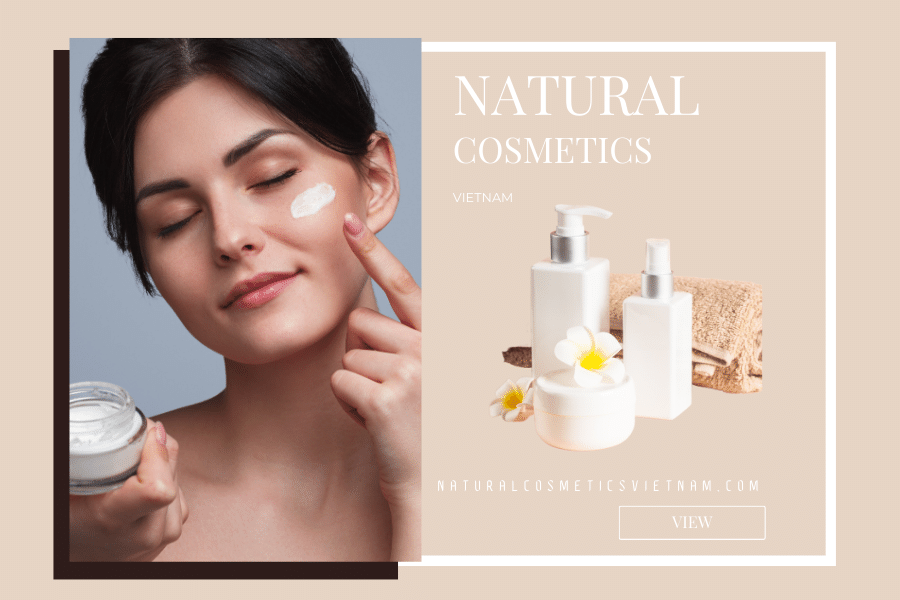
All about natural moisturizers in cosmetics
Skin Barrier Protection
Skin barrier protection is a crucial aspect of skincare, and natural moisturizers can play a significant role in maintaining and strengthening the skin’s barrier function. Here’s why skin barrier protection is important and how natural moisturizers can contribute to it:
- Barrier Function: The skin’s barrier function refers to its ability to retain moisture, regulate hydration levels, and protect against external aggressors. A healthy skin barrier is essential for maintaining optimal skin health and preventing issues like dryness, sensitivity, and inflammation.
- Moisture Retention: Natural moisturizers help to reinforce the skin’s barrier by providing hydration and preventing moisture loss. They create a protective layer on the skin’s surface, sealing in moisture and preventing water from evaporating. This helps to keep the skin adequately hydrated and prevents dryness and dehydration.
- Lipid Barrier Support: The skin’s barrier function is largely maintained by a combination of lipids, such as ceramides, fatty acids, and cholesterol. Natural moisturizers often contain plant-derived oils or extracts that mimic the skin’s natural lipids. These ingredients help to replenish and fortify the lipid barrier, promoting a healthier and stronger skin barrier.
- Protection against Environmental Stressors: The skin is constantly exposed to environmental stressors like pollution, UV radiation, and harsh weather conditions. Natural moisturizers can contain antioxidants and protective ingredients that help shield the skin from these external aggressors. This protection prevents damage to the skin barrier and helps maintain its integrity.
- Calming and Soothing Properties: Natural moisturizers often incorporate soothing ingredients like chamomile, aloe vera, or oatmeal. These ingredients have anti-inflammatory properties and can help calm and soothe the skin. By reducing inflammation and irritation, natural moisturizers contribute to a stronger and more resilient skin barrier.
- Enhanced Skin Repair: The skin’s barrier function is closely linked to its ability to repair and regenerate itself. Natural moisturizers may contain ingredients that support the skin’s natural repair processes, such as peptides or botanical extracts. These ingredients can aid in repairing any damage to the skin barrier and promote its overall health.
By using natural moisturizers that prioritize skin barrier protection, you can help maintain a strong and healthy skin barrier. This, in turn, promotes optimal skin hydration, prevents moisture loss, protects against environmental stressors, and supports overall skin health.
Anti-Aging Effects
Natural moisturizers can offer several anti-aging effects, helping to minimize the signs of aging and promote a more youthful appearance. Here are some ways in which natural moisturizers contribute to anti-aging:
- Hydration and Wrinkle Reduction: Adequate hydration is essential for maintaining the skin’s elasticity and reducing the appearance of wrinkles and fine lines. Natural moisturizers provide deep hydration, plumping up the skin and smoothing out wrinkles, resulting in a more youthful and radiant complexion.
- Antioxidant Protection: Many natural moisturizers contain antioxidants derived from plant extracts or botanical ingredients. Antioxidants help neutralize free radicals, which are unstable molecules that can cause cellular damage and accelerate the aging process. By providing antioxidant protection, natural moisturizers help combat oxidative stress and minimize the signs of aging.
- Collagen Support: Collagen is a protein that gives the skin its strength and elasticity. Natural moisturizers may contain ingredients that support collagen production, such as peptides or vitamin C. These ingredients help to maintain the skin’s firmness and reduce the appearance of sagging or loose skin.
- Skin Tone and Texture Improvement: Natural moisturizers often contain ingredients that promote skin tone and texture improvement. For example, natural acids like alpha-hydroxy acids (AHAs) or fruit enzymes can gently exfoliate the skin, improving its texture and promoting a smoother, more even complexion. This can help reduce the appearance of age spots, hyperpigmentation, and dullness.
- Nourishment and Renewal: Natural moisturizers typically incorporate nourishing ingredients, such as vitamins, minerals, and essential fatty acids. These nutrients help nourish the skin, support its natural renewal process, and enhance its overall health and vitality. By providing essential nutrients, natural moisturizers contribute to a more youthful and vibrant complexion.
- Soothing and Calming Effects: Aging skin can be more prone to sensitivity and irritation. Natural moisturizers often include soothing ingredients like chamomile, aloe vera, or calendula extracts, which help calm and soothe the skin. By reducing inflammation and irritation, natural moisturizers can help improve the overall appearance of the skin and minimize signs of aging.
It’s important to note that natural moisturizers may not have the same immediate and intense anti-aging effects as certain medical or cosmetic procedures. However, they offer a gentle and holistic approach to anti-aging skincare, promoting long-term skin health and a more youthful appearance. Consistent use of natural moisturizers, along with a comprehensive skincare routine and healthy lifestyle habits, can contribute to a more youthful and radiant complexion over time.
Environmentally Friendly
Natural moisturizers are often considered environmentally friendly due to several reasons:
- Sustainable Ingredients: Natural moisturizers typically use ingredients derived from renewable and sustainable sources, such as plant extracts, essential oils, and natural emollients. These ingredients are obtained through ethical and environmentally conscious practices, minimizing the impact on ecosystems and biodiversity.
- Biodegradable Formulations: Many natural moisturizers are formulated to be biodegradable, meaning they can break down naturally in the environment without causing harm. Biodegradable formulations reduce the accumulation of non-biodegradable substances in water bodies and soil, minimizing pollution and environmental damage.
- Reduced Chemical Load: Natural moisturizers prioritize the use of natural and organic ingredients, avoiding harsh chemicals, synthetic fragrances, and artificial additives. By reducing the chemical load in skincare products, natural moisturizers contribute to cleaner waterways and a healthier environment.
- Eco-Friendly Packaging: Some natural moisturizer brands also prioritize eco-friendly packaging options. They may use recyclable or biodegradable materials, such as glass, aluminum, or paper, and minimize excess packaging to reduce waste. Additionally, they may promote refillable or reusable containers to further minimize environmental impact.
- Cruelty-Free and Ethical Practices: Many natural moisturizer brands follow cruelty-free practices, ensuring that their products are not tested on animals. They also support fair trade and ethical sourcing, working with suppliers who prioritize environmental sustainability and fair labor practices.
- Support for Sustainable Farming: The cultivation of natural ingredients used in moisturizers often supports sustainable farming practices. Organic farming methods, for example, prioritize soil health, biodiversity, and reduced chemical usage, promoting ecological balance and long-term sustainability.
- Minimal Environmental Footprint: Natural moisturizers often strive for a minimal environmental footprint throughout their production processes. This includes energy-efficient manufacturing, reducing water usage, and implementing sustainable practices at every stage of the product’s life cycle.
By choosing natural moisturizers, consumers can support brands that are committed to environmental responsibility and sustainable practices. These products not only provide benefits for the skin but also contribute to a more sustainable and eco-friendly approach to skincare.
Holistic Approach
A holistic approach to skincare involves considering the overall well-being of the body, mind, and spirit, rather than solely focusing on external appearance. Natural moisturizers often align with this holistic approach due to the following factors:
- Mind-Body Connection: Holistic skincare recognizes the interconnectedness of the mind and body. Natural moisturizers often incorporate aromatherapy benefits by using essential oils or natural fragrances, which can positively impact mood, relaxation, and overall well-being. This connection between the senses and emotions contributes to a holistic skincare experience.
- Wellness-Oriented Ingredients: Natural moisturizers prioritize the use of ingredients that not only benefit the skin but also offer wellness benefits. For example, botanical extracts, vitamins, and antioxidants found in natural moisturizers provide nourishment to the skin while supporting overall health and vitality. These ingredients can have a positive impact on the body and contribute to a holistic approach to skincare.
- Environmental Consciousness: Holistic skincare takes into account the impact of products on the environment and promotes sustainable practices. Natural moisturizers, often made with eco-friendly ingredients and packaging, align with this ethos. By choosing natural moisturizers, individuals can contribute to a more sustainable and environmentally conscious lifestyle.
- Self-Care Rituals: Holistic skincare emphasizes the importance of self-care rituals and taking time for oneself. Natural moisturizers can enhance these rituals by providing a sensory experience through their textures, scents, and application techniques. This encourages individuals to engage in self-care practices, promoting relaxation, stress reduction, and overall well-being.
- Holistic Health Benefits: Natural moisturizers may incorporate holistic health principles by considering the potential benefits of ingredients beyond skincare. For example, certain botanical extracts used in natural moisturizers are known for their anti-inflammatory, calming, or rejuvenating properties. These benefits extend beyond the skin and contribute to a holistic approach to health and wellness.
- Emotional Well-being: Holistic skincare recognizes that emotional well-being can impact the health and appearance of the skin. Natural moisturizers, with their focus on gentle and non-irritating ingredients, can help create a sense of emotional comfort and balance. By promoting skin health and addressing emotional well-being, natural moisturizers support a holistic approach to skincare.
By embracing natural moisturizers and incorporating them into a holistic skincare routine, individuals can nourish their skin while considering the broader aspects of wellness, self-care, and environmental consciousness. This approach fosters a harmonious balance between the body, mind, and spirit, resulting in overall well-being and healthy, radiant skin.
Disadvantages of natural moisturizers
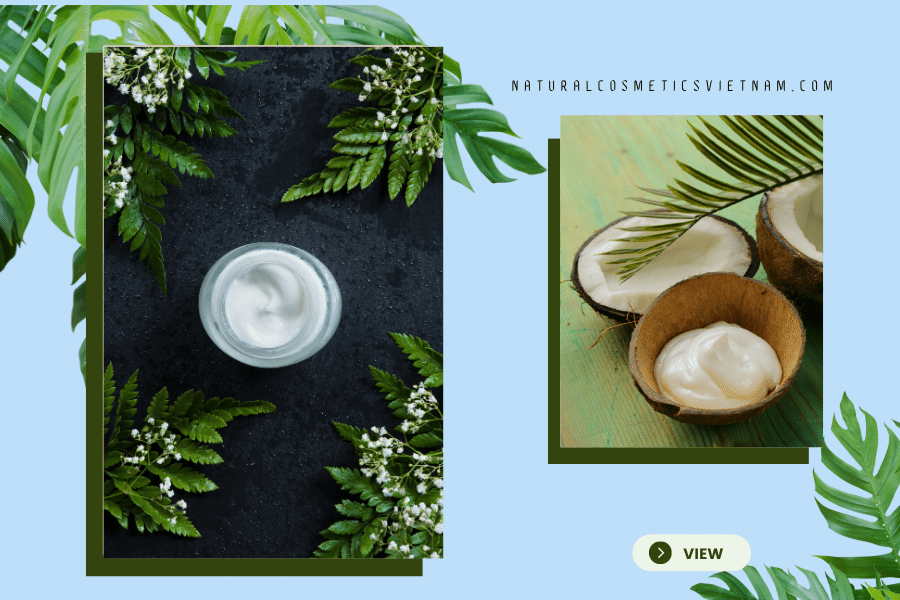
All about natural moisturizers in cosmetics
While natural moisturizers have many benefits, it’s important to consider that they may have some potential disadvantages as well. Here are a few factors to be aware of:
Limited Shelf Life
- Lack of Synthetic Preservatives: Natural moisturizers often avoid or minimize the use of synthetic preservatives, such as parabens or formaldehyde-releasing agents. These preservatives help extend the shelf life of products by inhibiting the growth of bacteria, fungi, and other microorganisms. Without these preservatives, natural moisturizers may have a shorter shelf life.
- Higher Risk of Microbial Contamination: Due to the absence or minimal use of synthetic preservatives, natural moisturizers may be more susceptible to microbial contamination. Exposure to air, moisture, or bacteria from fingers or other external sources can lead to the growth of microorganisms in the product. This can reduce the effectiveness of the moisturizer and potentially pose a risk of skin irritation or infection.
- Natural Ingredient Stability: Some natural ingredients used in moisturizers may be less stable than their synthetic counterparts. Over time, these ingredients may degrade or lose their potency, affecting the overall effectiveness of the moisturizer. This can result in diminished hydration or reduced benefits for the skin.
Variable Texture and Consistency
- Plant-Based Ingredients: Natural moisturizers often utilize plant-based ingredients, which can result in variations in texture and consistency. Different plant extracts, oils, and butters can have different properties, resulting in variations in the final product’s texture. This can make it challenging to find a natural moisturizer with a consistency that suits your preferences or works well with your skin type.
- Differences in Formulation Techniques: Natural moisturizers may be formulated differently from synthetic ones. Synthetic moisturizers often rely on standardized formulations to achieve consistent textures, while natural moisturizers may have less uniformity due to the use of natural ingredients. This can result in variations from batch to batch or brand to brand.
- Thicker or Greasier Texture: Some natural moisturizers, especially those containing rich plant oils or butters, may have a thicker or greasier texture. While this can provide intense hydration for dry skin types, it may not be preferred by individuals with oily or combination skin. Finding a natural moisturizer with a texture that suits your skin type and preference may require some experimentation.
- Absorption and Residue: Natural moisturizers may take longer to absorb into the skin compared to lighter synthetic formulas. This can leave a slightly greasy or oily residue on the skin’s surface, which may not be desirable for some individuals, particularly those with oily or acne-prone skin. However, not all natural moisturizers have heavy textures, and some can absorb quickly without leaving a residue.
- Individual Sensitivity: As with any skincare product, individuals may have varying sensitivities or reactions to natural moisturizers. Some people may find certain natural ingredients irritating or comedogenic, leading to clogged pores or breakouts. It’s important to read ingredient lists carefully and perform patch tests to determine how your skin responds to a particular natural moisturizer.
Allergies and Sensitivities
- Plant-Based Ingredients: Natural moisturizers often contain a variety of plant-based ingredients, such as botanical extracts, essential oils, and natural fragrances. While these ingredients are derived from natural sources, they can still cause allergic reactions or sensitivities in some individuals. Each person’s skin is unique, and certain natural ingredients may trigger an adverse reaction in sensitive individuals.
- Allergens in Natural Ingredients: Some natural ingredients used in moisturizers, such as certain plant extracts or essential oils, contain allergens that can cause allergic reactions. For example, common allergens like lavender, citrus oils, or chamomile can potentially cause skin irritation, redness, itching, or even allergic dermatitis in sensitive individuals.
- Sensitivity to Essential Oils: Essential oils, although natural, can be potent and cause skin sensitivities in some people. They contain concentrated aromatic compounds that can be irritating or sensitizing, especially when used in higher concentrations or if the individual has a known sensitivity to specific oils.
- Cross-Reactivity: Individuals with known allergies to certain plants or botanicals may experience cross-reactivity when using natural moisturizers containing related ingredients. For example, if someone has an allergy to ragweed, they may also be sensitive to moisturizers containing chamomile or other related botanicals.
Limited Formulation Options
- Ingredient Availability: Natural moisturizers rely on plant-based ingredients, which may have limited availability depending on geographic location and seasonal variations. This can restrict the range of ingredients that can be used in the formulation of natural moisturizers, potentially resulting in a narrower selection of products compared to synthetic counterparts.
- Targeted Treatments: Synthetic moisturizers often offer a wide range of targeted treatments, such as anti-aging, acne-fighting, or brightening properties. These formulations can contain specific active ingredients or technologies that address specific skin concerns. Natural moisturizers, on the other hand, may have fewer options for specialized treatments or may rely on a more holistic approach to skincare.
- Consistency and Texture: Synthetic moisturizers can be formulated to have specific textures, such as lightweight gels, mattifying lotions, or silky creams. This allows individuals to choose formulations that best suit their skin type and preference. Natural moisturizers, with their reliance on plant-based ingredients, may have more limited options when it comes to achieving specific textures or consistencies.
- Stability and Shelf Life: Certain synthetic ingredients used in moisturizers, such as synthetic preservatives or stabilizers, can help enhance product stability and prolong shelf life. Natural moisturizers, which often minimize or avoid the use of synthetic additives, may have a shorter shelf life and may be more prone to changes in consistency or odor over time.
Potential Inefficacy for Severe Skin Conditions
- Mild Formulations: Natural moisturizers often prioritize gentle and soothing ingredients, which may not provide sufficient efficacy for severe skin conditions. Conditions like eczema, psoriasis, or severe dryness may require more potent ingredients or specialized formulations that specifically target those concerns. Natural moisturizers may not have the same level of potency or specialized formulations as medical-grade or prescription skincare products.
- Limited Active Ingredients: Natural moisturizers typically rely on plant-based ingredients, which may not contain the same concentration or variety of active ingredients as synthetic alternatives. Certain synthetic ingredients, such as retinoids, alpha hydroxy acids (AHAs), or hydroquinone, have been extensively studied and proven effective for addressing specific skin concerns. These ingredients may not be present in natural moisturizers or may be present in lower concentrations, potentially limiting their efficacy for severe skin conditions.
- Individual Variability: Each person’s skin is unique, and what works for one individual may not work for another. While natural moisturizers can be effective for many people, there is no guarantee that they will provide the same level of efficacy for everyone, especially for severe skin conditions. Some individuals may require more targeted treatments or medical intervention to effectively manage their condition.
- Lack of Clinical Evidence: Natural skincare products, including moisturizers, may have limited clinical evidence to support their efficacy for severe skin conditions. The natural skincare industry is continuously evolving, and while many natural ingredients have anecdotal evidence and traditional use, scientific studies may be lacking, particularly for specific severe skin conditions.
Cost Considerations
- Raw Material Costs: Natural moisturizers often rely on high-quality plant-based ingredients, which can be more expensive compared to synthetic alternatives. Obtaining and processing these natural ingredients can involve additional costs, as they may require careful cultivation, harvesting, extraction, and purification processes.
- Limited Scale of Production: Natural skincare brands often prioritize sustainable sourcing and small-scale production, which can limit their economies of scale. Compared to larger, mass-produced synthetic moisturizers, natural moisturizers may have higher production costs, leading to a higher retail price for consumers.
- Certification and Standards: Some natural moisturizers may carry certifications or adhere to certain standards, such as organic, cruelty-free, or fair trade certifications. Meeting these certifications or standards often involves additional costs for the brand, which can be passed on to the consumer in the form of higher prices.
- Research and Development: Developing effective natural moisturizers may require extensive research and development to identify suitable plant-based ingredients, formulate stable products, and ensure desired skincare benefits. The investment in research and development can contribute to the overall cost of natural moisturizers.
- Packaging and Presentation: Natural skincare brands may prioritize sustainable packaging materials, such as glass bottles or recycled materials, which can be more costly compared to conventional plastic packaging. Additionally, brands that focus on aesthetically pleasing packaging or unique presentation may incur higher costs, which can impact the retail price of the product.
It’s important to note that not all natural moisturizers will have these disadvantages, and individuals may have different experiences depending on their specific skin type and needs. It’s always a good idea to read reviews, consult with a skincare professional, and find a natural moisturizer that suits your skin and aligns with your preferences and concerns.
Note when using natural moisturizers
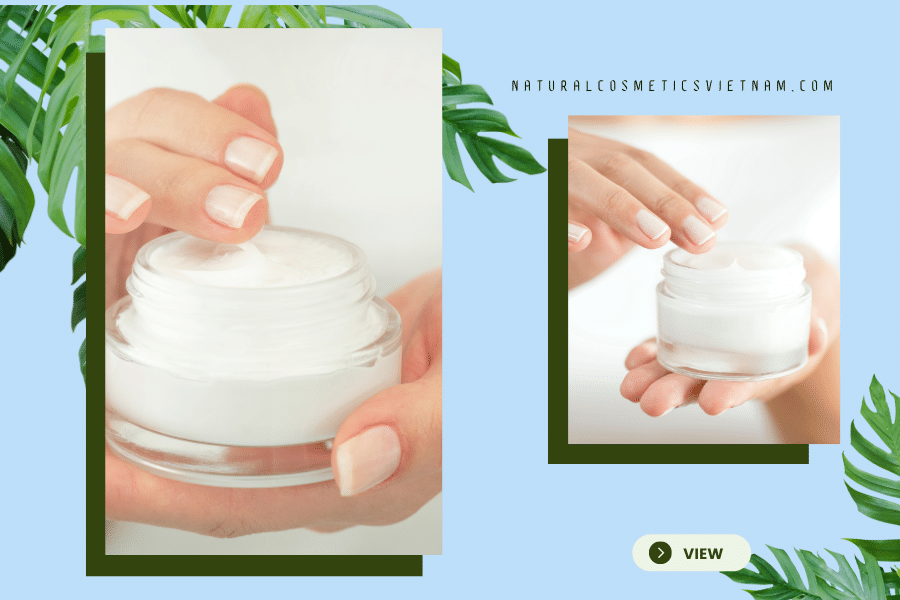
All about natural moisturizers in cosmetics
When using natural moisturizers, it’s important to keep the following notes in mind:
- Patch Test: Before applying a new natural moisturizer to your face or body, perform a patch test on a small area of skin. This helps determine if you have any allergic reactions or sensitivities to the product. Apply a small amount of the moisturizer on the inside of your forearm or behind your ear and observe the area for 24 to 48 hours. If any redness, itching, irritation, or other adverse reactions occur, refrain from using the product.
- Read and Follow Instructions: Always read the instructions provided by the manufacturer or brand. Follow the recommended usage guidelines, including the frequency of application and amount to use. Overusing a moisturizer, whether natural or synthetic, can lead to issues like clogged pores or excessive oiliness.
- Cleanse and Exfoliate: To maximize the benefits of a natural moisturizer, it’s essential to cleanse your skin properly before application. Remove any dirt, makeup, or impurities to ensure better absorption of the moisturizer. Regular exfoliation can also help remove dead skin cells, allowing the moisturizer to penetrate more effectively.
- Apply to Damp Skin: For enhanced absorption, apply natural moisturizers to slightly damp skin. This helps lock in moisture and improves the spreadability of the product. After cleansing, pat your skin gently with a towel, leaving it slightly moist before applying the moisturizer.
- Massage Gently: When applying a natural moisturizer, use gentle, upward strokes to massage it into your skin. Avoid pulling or tugging at your skin, as this can lead to premature aging or irritation. Be especially gentle around the delicate eye area.
- Adjust for Day and Night: Consider using different natural moisturizers for daytime and nighttime. Daytime moisturizers can provide hydration, while also offering additional benefits like sun protection or mattifying properties. Nighttime moisturizers often focus on deep hydration and skin repair.
- Store Properly: Natural moisturizers, particularly those with fewer preservatives, may have a shorter shelf life compared to synthetic products. Follow the instructions regarding storage conditions, such as keeping the product away from direct sunlight or excessive heat, to maintain its effectiveness and prevent spoilage.
- Consistency is Key: Like any skincare product, consistent use of a natural moisturizer is important for optimal results. Incorporate it into your daily skincare routine and apply it regularly to reap the long-term benefits for your skin.
Remember that everyone’s skin is unique, and what works for one person may not work for another. If you have specific skin concerns or conditions, it’s advisable to consult with a dermatologist or skincare professional for personalized advice and recommendations.
How to Use Natural Moisturizers
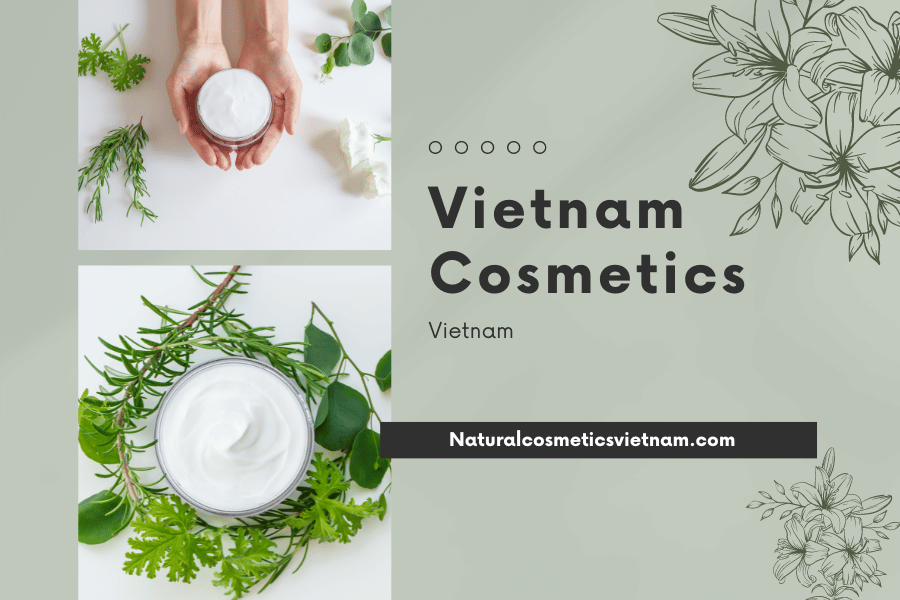
All about natural moisturizers in cosmetics
Using natural moisturizers is similar to using any other moisturizer, but here are some general guidelines to effectively incorporate them into your skincare routine:
- Cleanse Your Skin: Start by cleansing your face with a gentle cleanser suitable for your skin type. This removes impurities, excess oil, and allows the natural moisturizer to penetrate better.
- Choose the Right Natural Moisturizer: Select a natural moisturizer that is suitable for your skin type and addresses your specific skincare needs. Look for ingredients that provide hydration, nourishment, and other desired benefits.
- Apply to Damp Skin: Natural moisturizers tend to work best when applied to slightly damp skin. After cleansing, pat your face dry with a towel, leaving some moisture on the skin. This helps the moisturizer lock in the hydration and absorb better.
- Take an Appropriate Amount: Take a small amount of the natural moisturizer onto your fingertips or palm. The amount may vary depending on the consistency and richness of the product. Start with a pea-sized amount and adjust as needed.
- Warm the Product: Rub your hands together to warm the natural moisturizer slightly. This helps to spread the product evenly and facilitates better absorption.
- Apply to Face and Neck: Gently massage the natural moisturizer onto your face and neck using upward circular motions. Ensure that you cover the entire face, including the forehead, cheeks, nose, and chin. Extend the application to the neck area as well.
- Be Gentle: Avoid tugging or pulling at your skin while applying the moisturizer. Use light pressure and gentle motions to prevent unnecessary irritation.
- Allow Absorption: Give the moisturizer a few minutes to absorb into your skin before applying any other products or makeup. This allows the ingredients to penetrate and provide optimal hydration and benefits.
- Follow Your Skincare Routine: Continue with the rest of your skincare routine, including sunscreen during the day, if applicable. Layering other products on top of the natural moisturizer can further enhance the effectiveness and benefits.
- Adjust Usage Frequency: Depending on your skin’s needs, you can use the natural moisturizer once or twice a day. Some may prefer using it in the morning to prep the skin for the day, while others may prefer it as part of their nighttime skincare routine.
Remember that everyone’s skin is unique, so it’s essential to pay attention to how your skin responds to the natural moisturizer. Adjust the amount, frequency, or even the product itself if needed to find what works best for your skin.
Conclusion: Natural moisturization is an excellent approach to maintain healthy and smooth skin. Using natural moisturizers in cosmetics helps provide natural hydration and protect the skin from environmental stressors. Opt for products with natural ingredients to rejuvenate your skin and restore its natural radiance.










Leave a reply